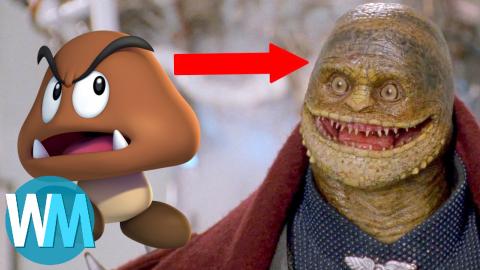Top 5 Reasons Why Video Game Movies Always Fail

Why can't these movies ever be as awesome as their source material? Whether it's Tomb Raider, Warcraft, or Alone in the Dark, video game film adaptations are almost universally bad, and we're about to tell you why. WatchMojo counts down the top reasons video game movies fail.
Special thanks to our user Granato333 for suggesting this idea! Check out the voting page at WatchMojo.comsuggest/Top+10+Reasons+Video+Game+Movies+Always+Fail
#5: They Adapt Either Too Much or Too Little of the Source Material
Video game films often face some key obstacles when adapting a game to the silver screen. Firstly, if the game does not have enough plot to support a movie, the film can suffer; as games at least have gameplay to fill the void between plot points. On the other hand, sometimes movies based on games have the opposite problem: trying to cram too much of the games’ story into a single film, which leaves little room for character development or for the filmmakers to add their own spin on the material to make the film feel cohesive or distinct.
#4: They Make M-Rated Games Into PG-13 Movies
M-rated games feature mature and often violent content. So when the time comes for them to receive a film adaptation, what does Hollywood do? They remove all of the blood and gore, of course! While usually done in the name of allowing more people to potentially see the film in theaters, it can often lead to an inauthentic adaptation of the game in question. Case in point: “Mortal Kombat.” The games’ over-the-top blood and violence are part of their appeal, yet the film takes the “mortality” out of the equation; making for a movie that only kind of resembles the source material.
#3: Plot is Not Faithful to the Source Material
Hollywood has a terrible reputation with adaptations not matching up with the things they’re based on, and no adaptations are so egregiously unlike their source material as video game movies. Game adaptations rarely, if ever, manage to capture the spirit, much less the content, of the original games. While in some cases, this consists of turning the premise on its head in a bizarre way, such as the “Super Mario Bros.” movie’s steampunk setting, in others, the films are essentially adaptations in name only, with the title and character names being the only thing they share in common with the games.
#2: Studio Intervention
Corporate interference is a rampant problem with adaptations, and video game movies are no exception. Many of the changes we mentioned previously are the result of the Hollywood studios demanding changing the story to better appeal to a broader demographic, or else to take advantage of a trend in other film genres. All this mucking about from suits who don’t understand or care about the games the films are based on only helps add to the perception that video game movies are just cash grabs for the studios. Still, even video game studios can ruin their own films by insisting they stick too close to the original.
#1: Modern Video Games Are Basically Movies Anyway
Back when video games were all pixelated and 2-dimensional, getting a film adaptation was a major upgrade in terms of visuals and storytelling…well, potentially. These days however, video games are a billion dollar industry, with huge productions that feature big name actors and graphics and cutscenes so realistic there’s almost no uncanny valley effect. In addition, the storylines and scale are on a level that they rival, or exceed, most major blockbusters. However, movies lack the degree of interactivity of video games, which can leave video game adaptations feeling like the inferior versions by default. After all, in video games: the hero is you!